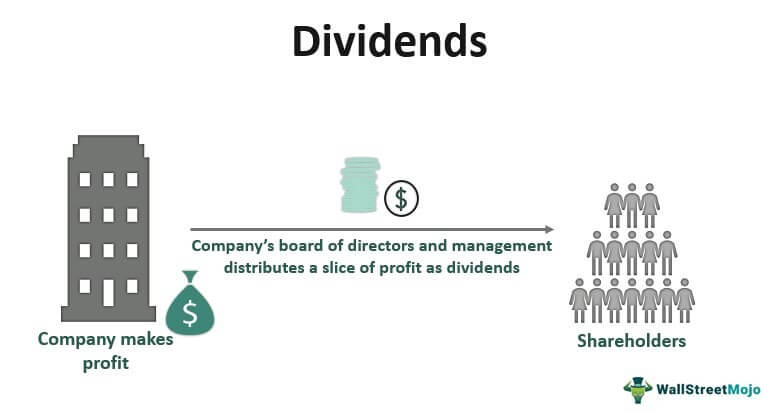What Are Dividends?
Stocks that pay dividends to investors on an annual, semi-annual, quarterly, or monthly basis are known as dividend stocks. The profits of the corporation are used to pay these dividends. Dividends, which are routinely paid out, are how stock investors get returns on their investments. Dividends may be distributed in the form of cash or extra business equity. Additionally, each corporation has a different dividend payout schedule.
Established businesses are more likely to pay dividends. Due to their position, some businesses might not devote as much of their earnings to reinvesting in their operations. Additionally, high- growth businesses—which may be in the IT or biotech industries—rarely pay dividends. Instead, they are concentrated on using their earnings to develop and increase the company.
Dividend-paying stocks can offer a steady and expanding income source. Investors often like making investments in businesses that generate dividends that rise year over year, helping them to exceed inflation. The payout ratio is an essential consideration when buying dividend stocks. The payout ratio of a stock tells you what proportion of earnings the firm distributes to shareholders by dividing the number of dividends it pays out per share by its earnings.
Companies consistently pay dividends in both Canada and the US. Some companies choose to pay discretionary dividends when deciding to distribute money to their owners, while others choose to pay quarterly, monthly, or semiannually. However, a company's board of directors must first authorize each dividend before it may be paid.
It is critical to understand that there are specific dates you need to be aware of while investing. The significant dates are:
Trade date: Date on which an order to acquire shares of stock is made.
Settlement date: The shares must be physically present in your portfolio by the settlement date for the transaction to be considered final. The day you buy and pay for the stocks doesn't mean you immediately own them.
Declaration: This is the day on which the business declares that dividend payment will be made.
Ex-dividend: To be eligible for the dividend payment, you must possess shares of the stock before the ex-dividend date. You won't be qualified to collect the dividend if you make your purchase on or after that date.
Payment: When the funds will be deposited into brokerage accounts is known as payment.
Why dividends?
A corporation can distribute a portion of its earnings to investors by paying dividends. Profitable companies have two options: either reinvest in the company or distribute some of the earnings to investors.
When businesses decide to pay a portion of their profits to shareholders, they do so in the form of dividends. The board of directors of a corporation decides how much dividends are paid out. Although some businesses pay dividends annually or semi-annually, dividends are typically handed out quarterly. A corporation may also choose to add a special non-recurring dividend to already planned dividends or issue it separately.
Even if the company doesn't generate a profit, some businesses will nevertheless pay dividends. The stock price may be more steady around the results announcement as a result of maintaining the established track record of consistent payments. Dividends are paid by companies for a variety of reasons. When they have an excess net profit, they may decide to pay dividends to shareholders. As many investors enjoy the additional income, this may enhance the appeal of the company's shares.
Some businesses reward their investors with dividends in exchange for their confidence in handling their funds. It can assist preserve investor confidence and presenting the company in a favorable light.
Forms of dividend payments
Companies that distribute dividends in cash depending on the price per share are said to pay cash dividends.
Stock dividends: Businesses have the option of paying stock dividends rather than cash dividends. Stock dividends are not taxable until sold, in contrast to cash dividends, which are taxed when distributed. Since they may choose when to pay the tax, this can provide investors additional freedom. Additionally, it's a benefit for businesses that wish to pay dividends but are short on operational capital.
One-time dividends: A special dividend or one-time dividend payment is a one-time transfer of firm earnings to shareholders. It might be connected to a particular event, such as the sale of a sizable asset, and is often greater than normal dividend payments.
Property dividends: Some businesses do give property dividends, albeit it is not a typical practice. This might take the shape of whatever tangible assets the business possesses, including real estate, machinery, and the like. Another choice is to pay out through shares of a subsidiary business. The dividend is recorded at market value when it is handed out. Shareholders have the option of selling the asset or keeping it for future growth.
